
The Free Press

On today’s Front Page from The Free Press: how to respond to the anarchy in the UK. Will Missouri voters give Cori Bush the boot? Plus: Daniel Pearl’s father talks to The Free Press about the aborted plea deal for 9/11 mastermind KSM—the man who killed his son. And much more.
But first: you might have seen the financial turmoil that roiled markets across the world yesterday and asked, “What the hell just happened?”
That’s exactly what the economic historian Niall Ferguson asked himself, “with the emphasis on ‘hell,’ ” as he writes in his latest column for The Free Press. Both Niall and former treasury secretary Larry Summers are helping us make sense of the unnerving economic news, which saw tumbling markets and the so-called “fear index”—a gauge of U.S. market volatility—reach its highest level since the darkest days of March 2020.
Here, Niall offers his thoughts:
As I watched the global stock markets tumble, I thought of a trip I took earlier this year to the Louvre with my younger sons. Bored by the throng of people inanely taking identical bad photographs of the Mona Lisa, we stumbled upon a largely forgotten masterpiece, the representation of Milton’s Pandemonium by the Victorian artist John Martin.
“Take a good look, lads,” I said. “That’s where we’re headed.”
There is a time-honored convention among financial journalists to identify a cause, or at least a catalyst, for any financial crash. As Asian, then European, then American markets tumbled on Monday—the worst meltdown in Japan since 1987—the prime suspect was last Friday’s somewhat underwhelming U.S. jobs report.
“Concerns about a slowing U.S. economy are front and center after job growth slowed sharply in July,” explained The Wall Street Journal. “Investors are worried that the Federal Reserve has moved too slowly and will need to play catch up in cutting rates.” The Financial Times told pretty much the same story. “Markets, which have been rising for most of this year, fell amid fears the Federal Reserve has been too slow to respond to signs the U.S. economy was weakening.”
But Friday’s jobs report wasn’t that bad. The low number of jobs added by the U.S. economy in July (114,000) might be the result of summertime distortions. April’s number was even lower—108,000—though that became clear only after the statisticians revised it. Still, no one batted an eyelid. And so on I might go, explaining to you that things really aren’t that bad in the U.S. labor market and that consumers haven’t yet thrown in the towel in a way that might signal a coming recession.
But a reasonable layman wants to interrupt all this and scream: “Why would even a much worse jobs number in the U.S. cause the Japanese stock market to fall by 12.2 percent in a single day?”—its biggest one-day move in 37 years. Why would a U.S. jobs report cause Japanese bank stocks to fall even further? Why would it cause the South Korean and Taiwanese markets to drop more than 8 percent? And the VIX index of implied volatility to register a massive jump?
What to Do When the Market Drops? Call Larry Summers.
For more on the financial news, listen to the latest episode of Honestly. Michael Moynihan talks to former treasury secretary Larry Summers, who tells Michael what is going on in financial markets, what caused it, whether it was avoidable—and what happens next.
The big takeaway? You should be alarmed. Because “if you’re not alarmed about anything, that’s when I’d be most alarmed,” Larry tells Michael. “We do have big problems. We are on an unsustainable fiscal trajectory. Too many of our citizens don’t get the education they need to succeed in the global economy, or live in places where there’s too little opportunity for their children. And we face huge national security challenges, whether it’s Iran, Russia, China. These are huge and grave issues. If we ever feel like it’s all fine and we can just go on to cruise control, and everything is going to be hunky-dory forever, that’s when I’ll be alarmed.
“But as long as Americans are alarmed, debating, thinking about changing things, we’ll meet our challenges.”
Hit play below to listen to their conversation on Spotify, or catch it wherever you get your podcasts.
Several U.S. troops were injured in a missile attack on a base in Iraq Monday. The rocket attack comes as Israel and the U.S. brace for Iran’s retaliation for the killing of Hamas leader Ismail Haniyeh in Tehran last week. (Times of Israel)
After weeks of protest, Bangladesh’s prime minister Sheikh Hasina resigned and fled the country Monday. Hasina has ruled Bangladesh for 15 years but lost power after she attempted to quash student protests that erupted last month. “It is the people’s revolution against a dictator,” one protester told The Wall Street Journal outside the prime minister’s palace, which was stormed by jubilant crowds. (The Wall Street Journal)
How Wikipedia was captured by the regime: Ashley Rindsberg reports that the site has gone from a decentralized database of all the world’s knowledge to a top-down activism and advocacy regime. (Pirate Wires)
The former Obama advisers who founded Pod Save America have been accused by their employees of flaunting their wealth, creating a toxic work environment, and busting unions. Or, as the Free Beacon puts it, “annoying progressive elites do battle with their even more annoying progressive employees.” (The Washington Free Beacon)
Before he dropped out of the race, Joe Biden was polling badly in Sun Belt battleground states and was instead focused on defending the Blue Wall of Michigan, Wisconsin, and Pennsylvania. But buoyed by recent polls, Kamala Harris wants to put Sun Belt states like Georgia, North Carolina, and Arizona at the center of her game plan. That’s a mistake, warn these Democratic strategists. (NOTUS)
Team Trump was quick to describe the downturn as the “Kamala crash.” Blaming your incumbent opponent for bad economic news is Campaigning 101, though not according to The New York Times, who accused Trump of “stok[ing] economic angst.” (The New York Times)
Nine UNRWA staff members were possibly involved in the October 7 massacre in Israel, a UN report has found. The agency responsible for Palestine refugees has fired the workers. Here’s a thought: Maybe they should be arrested, too? (Reuters)
Can the man who once called for a “total and complete shutdown of Muslims entering the United States” woo Arab American voters? One man who thinks so is Bishara Bahbah, who recently launched Arab Americans for Trump. (The New Yorker)
A new report from the House Judiciary Committee finds that at least 99 illegal migrants on the terror watch list have been released into the United States between 2021 and 2023. The report also found that Border Patrol has “encountered tens of thousands of migrants from countries that could present national security risks—including 2,134 Afghan nationals, 33,347 Chinese nationals, 541 Iranian nationals, 520 Syrian nationals, and 3,104 Uzbek nationals.” (Fox News)
America has too many laws, says Supreme Court Justice Neil Gorsuch: “Over the past decade, Congress has adopted an average of 344 new pieces of legislation each session. That amounts to 2 million to 3 million words of new federal law each year.” (The Atlantic)
Is the United Kingdom on the brink of civil war? Elon Musk thinks that it is “inevitable.” That is what he claimed on X on Saturday. And while I think the idea of an unavoidable all-out war on the streets of Britain is absurd, it’s easy to be gloomy about the country’s future given the news out of my homeland.
The disorder started after the appalling killing of three young girls at a Taylor Swift dance party on July 29. Riots followed, fueled by false rumors that the perpetrator was a Muslim refugee. He is, in fact, the British-born son of Rwandan parents. The disorder spread last week, culminating in a weekend of violence. One mob attacked a mosque (read the chilling account from one worshipper here). Another tried to set fire to a hotel housing migrants as they chanted “get them out.” At least ten police officers were injured in one confrontation. And in response to the violence, groups of masked Muslim men have taken to the streets, chanting “Allahu Akbar” and vowing to defend themselves.
One encouraging sign is the unequivocal denunciation of the violence, criminality, and looting that ended with nearly 400 arrests over the weekend. But that can be only part of the response, argues former UK government minister Nadhim Zahawi for The Free Press today. Zahawi, who was born in Baghdad and rose to become a Conservative MP, argues that the violence of the last week could have been avoided—if the British establishment had acknowledged that “the warning signs have been present for years.”
He continues: “For every person who tried to tip-toe through the minefield of topics pertinent to this disorder—society, culture, religion, disenfranchisement, racism, the speed of change, feelings of powerlessness—there were ten more who wanted to bury their heads in the sand.”
The first step to fixing the problem, Zahawi says, is “politicians of all stripes (including myself) must take responsibility for not trying harder to defuse the tensions.” Read Nadim Zahawi’s full op-ed: “The British Establishment Refused to Talk about Migration. Now We’re Paying the Price.”
→ Daniel Pearl’s father says KSM deserves the death penalty: On February 1, 2002, terrorist Khalid Sheikh Mohammed beheaded 38-year-old Wall Street Journal reporter Daniel Pearl, who was in Pakistan for a reporting trip. When the videotape of his execution was released, it showed Pearl acknowledging that he was a Jew, after which a hand holding a knife slit his throat and then severed his head. His body was then cut into ten pieces and buried in a shallow grave near Karachi.
Five years later, before a military tribunal at Guantanamo, KSM boasted that his hand was the one that murdered Pearl: “I decapitated with my blessed right hand the head of the American Jew, Daniel Pearl, in Karachi, Pakistan.”
KSM was also, of course, one of the alleged masterminds of the 9/11 terrorist attack. For 18 years, he has been imprisoned at Guantanamo, awaiting a military trial that was originally set to start in 2021. On July 31, it was announced that KSM had agreed to plead guilty in return for a life sentence. Days later, Defense Secretary Lloyd Austin revoked the deal, meaning a death sentence for KSM is no longer off the table.
One person applauding Austin’s rejection of the plea is Judea Pearl, Daniel Pearl’s 88-year-old father. One of the country’s most prominent computer scientists, Judea Pearl told The Free Press that it was important that KSM be executed. “He not only never expressed regret, he bragged about what he did,” Judea said. None of the government’s charges against KSM include the murder of his son, which angers Judea. “As a moral issue, it is clear that my son’s murder should be part of the charges,” he said. “Witnesses must be called, evidence must be considered, and new charges must be brought. If the allegations for murdering Danny are not brought up in court, then the KSM prosecution will always be incomplete.” —Joe Nocera
To read more from Judea Pearl on the plea deal reversal, read Joe Nocera’s full interview here.
→ Trump’s whining is not winning: If you’re complaining, you’re losing. It’s true in life and it’s true in politics. Recall the final weeks of the Biden reelection bid, in which the White House and the Biden campaign complained about polls they thought were inaccurate and a media they thought was unfair (as though the legacy press treated Biden with anything other than kid gloves).
Well, with Kamala Harris having caught up in the polls, it’s now Donald Trump doing the complaining. On Sunday, his campaign sent out a “polling analysis” alleging that the latest CBS/YouGov poll was “put[ting] a finger on the scale” to produce results that flatter Harris. This is not “national gaslighting,” as Team Trump argued, but simply what all pollsters do to ensure their polling sample is reflective of the electorate.
Elsewhere, Trump is now complaining about debating Harris on the date he had previously agreed to square off with Biden. Trump wants to move the showdown a week earlier and from ABC to Fox News, he said in a Truth Social post on Friday. Meanwhile, Shawn McCreesh reports that the former president is upset about the size of his and Harris’s respective crowds. At a rally in Atlanta, Trump worried he may not be the hottest ticket in town any more, after Harris filled the same arena earlier in the week. (He also claimed Harris is cheating by inviting celebrities; her rally included a performance by rapper Meghan Thee Stallion.) “The crowd she got was because she had entertainers,” the former president kvetched onstage. “I don’t need entertainers,” said Trump. “I fill the stadium because I’m making America great again.” —OW
→ Will Cori Bush get the push?: Is the Squad about to shrink again? Back in June, Jamaal Bowman, a New York lawmaker and member of the Democrats’ progressive group, was given the boot by voters in a campaign focused on his hostility toward Israel in the wake of October 7. Today in Missouri, Cori Bush—the Black Lives Matter activist turned congresswoman—could face the same fate as she goes up against Wesley Bell, a moderate prosecutor who has emphasized Bush’s anti-Israel rhetoric and has the backing of pro-Israel groups.
Though the biggest issues on Missouri voters’ minds are the economy, abortion, and immigration, Bush has essentially staked her chances of winning this election on her views about the Middle East. Just a few days ago, while campaigning at a public library in Ferguson, Missouri, Bush refused to call Hamas a terrorist organization. The New York Times later reported that “she was reluctant to classify Hamas as a terrorist group given how little she knows about it.”
“I have no communication with them,” Bush told the Times. “All I know is that we were considered terrorists, we were considered Black identity extremists and all we were doing was trying to get peace. I’m not trying to compare us, but that taught me to be careful about labeling if I don’t know.”
If the polls are right, it looks like Bush’s constituents aren’t willing to stick by her, which could make her the second Squad member to be ousted by voters over the Israel-Hamas war this election cycle.
—Francesca Block
Read Eli Lake’s piece that predicted this fallout back in February, “Could October 7 Bring Down the Squad?”
→ Medal meddling: By now you’ve heard all about the legendary runs from American gymnasts Simone Biles and Suni Lee in Paris—but while they were stumbling on the balance beam, another American finally got her chance to shine. In yesterday’s floor competition, Jordan Chiles earned her first individual medal and brought the U.S. yet another bronze for her floor routine. But Chiles’ path to victory was anything but smooth. Her initial score landed her in fifth place, but after a nail-biting appeal, she was awarded an extra one-tenth of a point, moving her onto the podium and into a puddle of happy tears.
At the same time, there was medal censorship afoot on the badminton court. In the men’s final yesterday, Taiwan’s Lee Yang and Wang Chi-lin triumphed over China’s top-ranked team to earn gold; but the second the match concluded, China’s state-run CCTV cut the feed, effectively pretending that the victory didn’t exist. No medal ceremony or postgame press conference was broadcast, just a memory-holed match, taking the term “sore loser” to a new level. Meanwhile, in the stands in Paris, fans holding banners in support of Taiwan had them confiscated by stadium security or ripped up by other spectators. Who knew badminton could be so dramatic? Watch Taiwan celebrate their victory here.
—Evan Gardner
What to watch today: It’s a big day for team sports in Paris. At 12 p.m., watch the undefeated U.S. women’s soccer team take on Germany in their semifinal. And at 4 p.m., the Americans meet the Germans in the women’s beach volleyball quarterfinal.
Oliver Wiseman is a writer and editor for The Free Press. Follow him on X @ollywiseman.
To support The Free Press, become a paid subscriber today:
And if you’re enjoying The Front Page, consider forwarding it to someone else you think might like it.

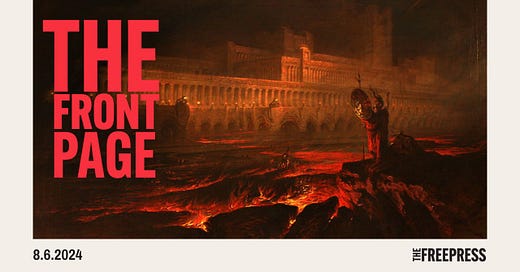



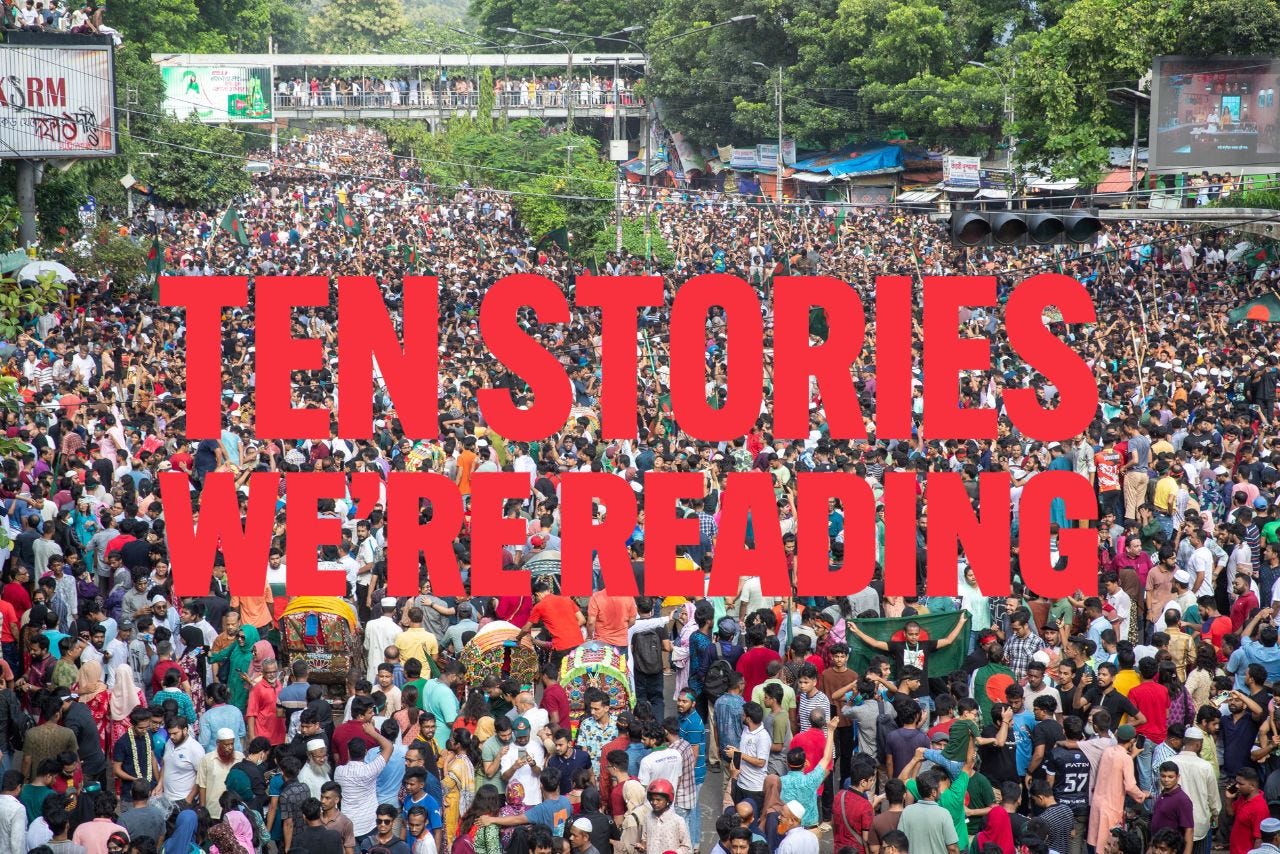

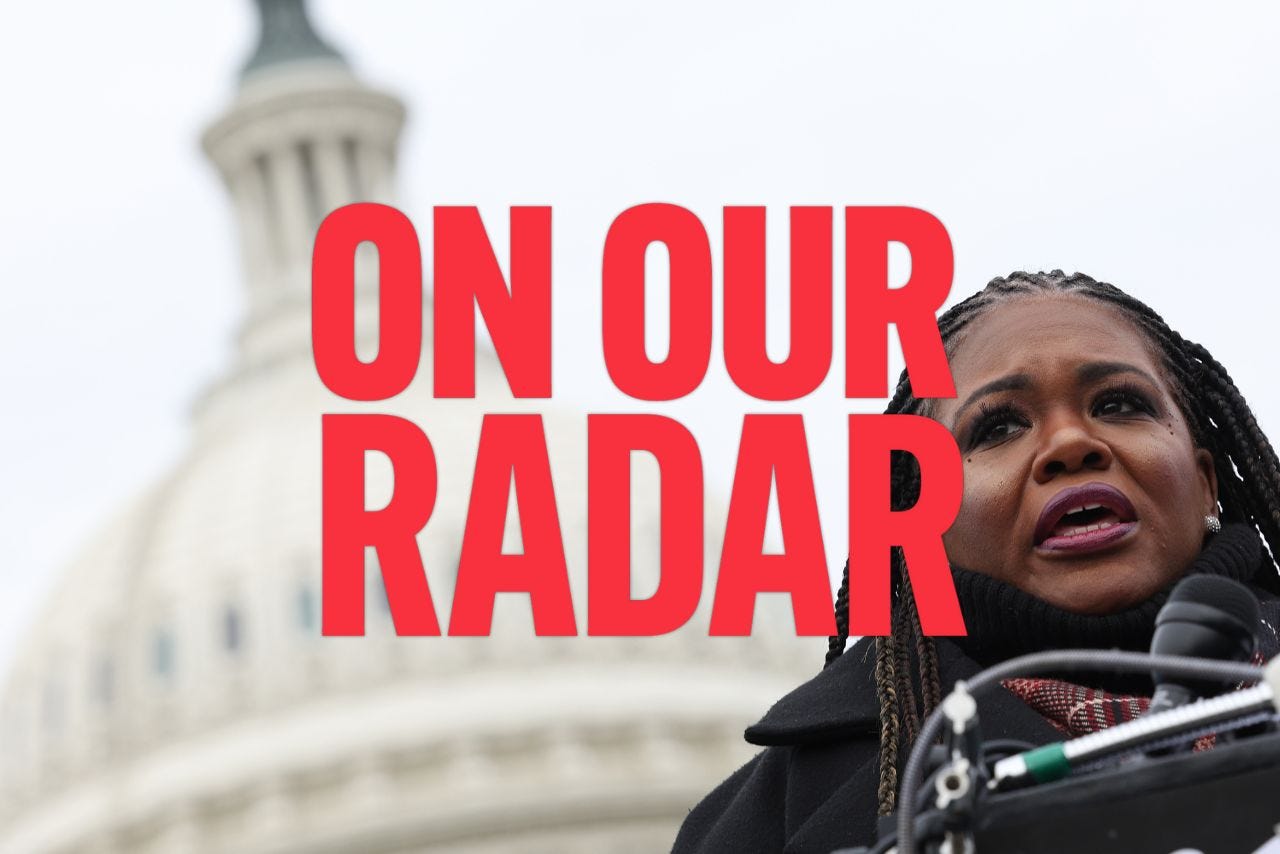



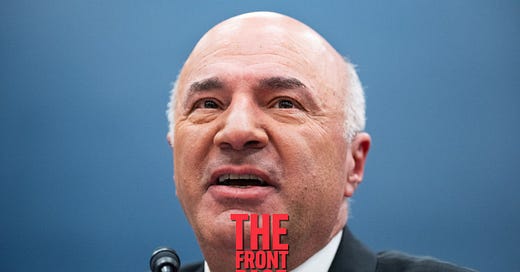



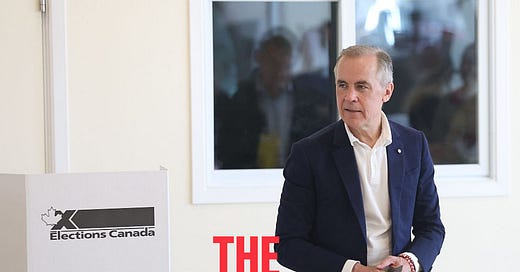

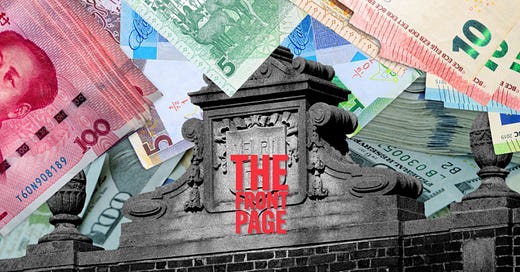

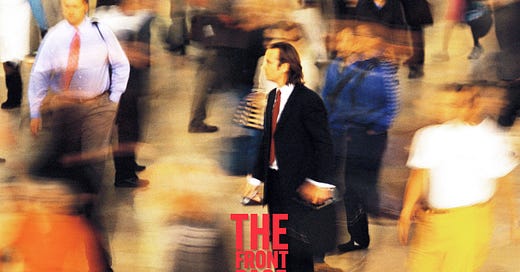
All we have to do is look at the results of 4 years of Biden/ Harris. If Trump was smart he would let their record do all the talking , talk is cheap.
Donny-boy sure does sound desperately insecure about his little chicky-boo opponent, doesn't he?